
You signed up for a gym membership - Great! But now what?
You have all these new tools to help you stay fit - Awesome! But where to begin?
At Genesis Health Clubs, we want our members to be lifetime gym rats and outdoor enthusiasts because we know that you need to be active to practice a healthy lifestyle. Switching from a non-exerciser to a gym-goer doesn’t happen overnight, so we have some insight on how beginner exercisers can get started.
Our certified Personal Trainers have many years in the health and fitness industry working with clients of all experience levels, helping them with personal training, nutrition coaching, and sports performance preparation. We have spoken to some of our top trainers in the company, and they have offered the following tips to help beginners start exercising, avoid injury, and maximize their efforts to change their lives.
Find your “why.”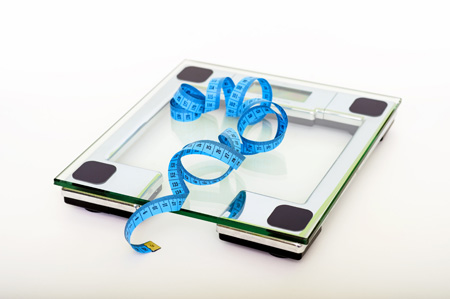
Before jumping blindly into an exercise program, we suggest a different approach: start with your mind. It’s important to understand the motivation behind joining a health club. It’s hard to find time to exercise, and it can be uncomfortable. You may not see results right away, and it can become discouraging if you are not clear on your why. It’s easy to quit early if you do not have a clear understanding, and if you have expectations that are not realistic to your lifestyle, it’s hard to keep up with them.
Even if weight loss is your main reason to start exercising, focus on why you want to lose weight to drive your workout motivation. Do you want to be able to play with your kids? Grow old with your partner? Avoid medical problems? Whatever your reason for getting healthy, make sure that the reason can transcend the scale.
You’ll need a reason to keep being active long after the pounds have dropped.
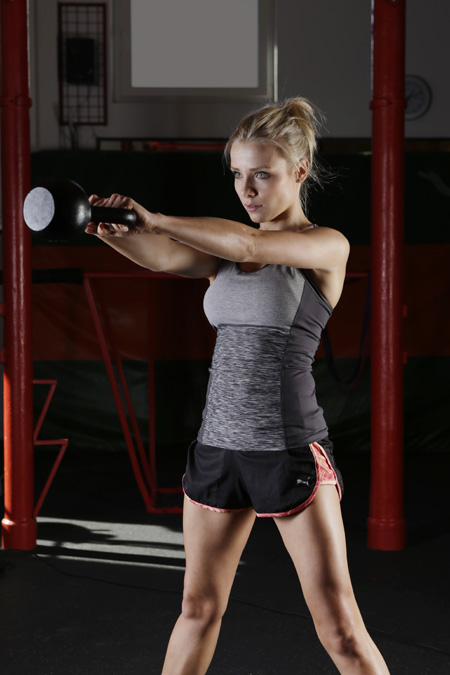 Set realistic goals that aren’t outcome-oriented
Set realistic goals that aren’t outcome-oriented
“I want to lose 10 lbs in two months. I want to run a 5k in 20 minutes. I want to fit into a size 4 pair of jeans.”
Any of these goals sound familiar? They are outcome-oriented and are less effective for people new to exercise. By placing so much focus on these types of goals, you can put unnecessary pressure on yourself, hindering your ability to reach the goal. For example, if you can’t shed the weight in the time frame, you expect you may be discouraged from continuing to exercise. This can create a disheartening cycle of exercise relapse.
Instead, we recommend setting goals based on healthy behaviors that you can measure on both a weekly and long-term basis. Goals of this nature will help you build healthy habits that will aid your transformation into a health and exercise enthusiast.
Some examples?
“I want to work out 3 times a week for 20 minutes."
"I want to strength train twice a week."
"I want to do something active for 10 minutes every day.”
Set goals for yourself that are realistic and doable (consider how much time you have and other responsibilities!). If you’re a single mom or a busy executive, you may not have as much time as others to spend in the gym.
It’s easy to get discouraged. Choose a habit that you’re 90 to 100% confident that you can accomplish. That doesn’t mean setting a goal is not challenging. However, setting simple, achievable goals that you can measure on a week to week basis will build an efficacy for exercising. Continue adding additional habitual goals every few weeks, and you’ll reach those loftier, outcome-oriented goals… Just remember to be patient and show yourself grace.
It takes time to get external results. Take note of those non-scale wins. Are you feeling better, is that move you struggled with getting a bit easier? Do you feel stronger? Rember, change happens from the inside out – things are happening internally before they happen externally. Think about 'inside-out health' instead of 'outside-in health.' Focus on how you feel first and how exercise makes a difference in your life from an energy standpoint.
Don’t do too much too soon.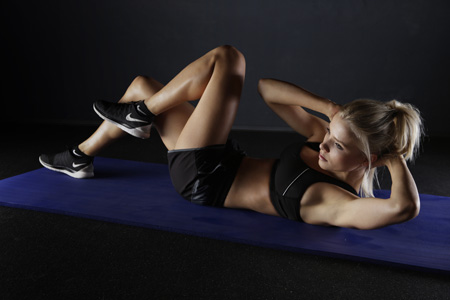
Often, people try to do too much too soon and don’t see the results they want right away. This makes them feel like they failed. Their confidence goes down, which continues to hurt their workout routine consistency. They see themselves failing again…
This vicious cycle can be broken if you make sure not to do too much too soon.
For beginners, functional training will be your friend. Are you part of the crowd that thinks functional training sounds like exercise for “old people?” Your skepticism will keep you from what we think – scratch that – KNOW is a killer workout.
Functional training describes exercises that focus on training your body to thrive in your day-to-day life. These exercises use motions like pushing, pulling, hinging, squatting, rotating, and carrying to mimic demands your body will be under every day. Picking up a toddler? Grabbing a heavy box from a top shelf? Bringing all the groceries in one trip because taking multiple trips isn’t an option? Functional training will help you do all that with less stress and pain.
Functional training is great for beginners because you can easily scale exercises to be more or less difficult by adjusting weight. Still, you keep the risk of injury low because the exercises don’t require you to perform unnatural movements.
If you’re still not convinced that functional training can be challenging enough to get results, try out these favorite exercises:
Medicine ball squat with an overhead lift
- To start, stand with your feet slightly wider than your hips with your toes pointed slightly outward. Hold the medicine ball in front of your body.
- Send your hips back as if you are aiming to sit in an imaginary chair. The movement comes from your hips and glutes – NOT from your waist. Keep your back straight and chest up. Squat until your hip joint is parallel to your knees, making sure that your knees stay in line with your feet.
- When you push out of the squat, focus on keeping the weight in your heels as you drive the medicine ball above your head in an upward press. Avoid arching your lower back as you lift the ball skyward.
Lunge with back row
- Use TRX bands or another resistance band tied around a sturdy object. Grab the handles with both hands, palms facing each other.
- Step back into a lunge keeping your front knee at a 90-degree angle. Aim for your back knee to also bend at a 90-degree angle downward, keeping your body straight.
- Pull the cable toward your chest, keeping your elbows at the same height as your shoulders.
- Stand back up to the starting position with your arms back out in front of your body.
Bridge with arm extension
- Lie faceup on a sturdy surface, bend your knees, and plant your feet firmly into the ground. Your feet should be close to your glutes.
- Lift your hips into a bridge by using your glute muscles. Be careful not to use your lower back or hamstrings to power the move.
- Once in the bridge, extend one arm straight up toward the sky and hold. Alternate between both arms.
Everyone has heard the expression ‘no pain, no gain.’ Well, we're calling that bluff. Avoid pushing yourself to the point of “too sore.”
The value of a workout is not measured by the amount of delayed onset muscle soreness (DOMS) that you experience. You should be challenged during your workout but not so sore that you can’t continue to workout days later.
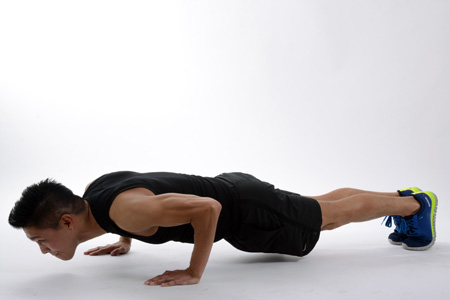 Practice good form and avoid common mistakes
Practice good form and avoid common mistakes
One of the biggest mistakes new – and not so new – exercisers make poor form.
A lot of times, we see that men lift too heavy and women lift too light. Most people also lift too fast. Lifting safely and efficiently will keep you from getting hurt because, let’s face it – nobody’s got time for that!
If you’re just starting and lifting weights is intimidating, start with bodyweight exercises like push-ups, squats, and core work. Bodyweight exercises can be just as effective at building strength for new exercisers!
If you're ready for more workouts, but want to stay safe as you try new things, check out the blog below for workout mistakes and ways to avoid them:
Common Workout Mistakes & How to Avoid Them
Find a support system or community to keep you accountable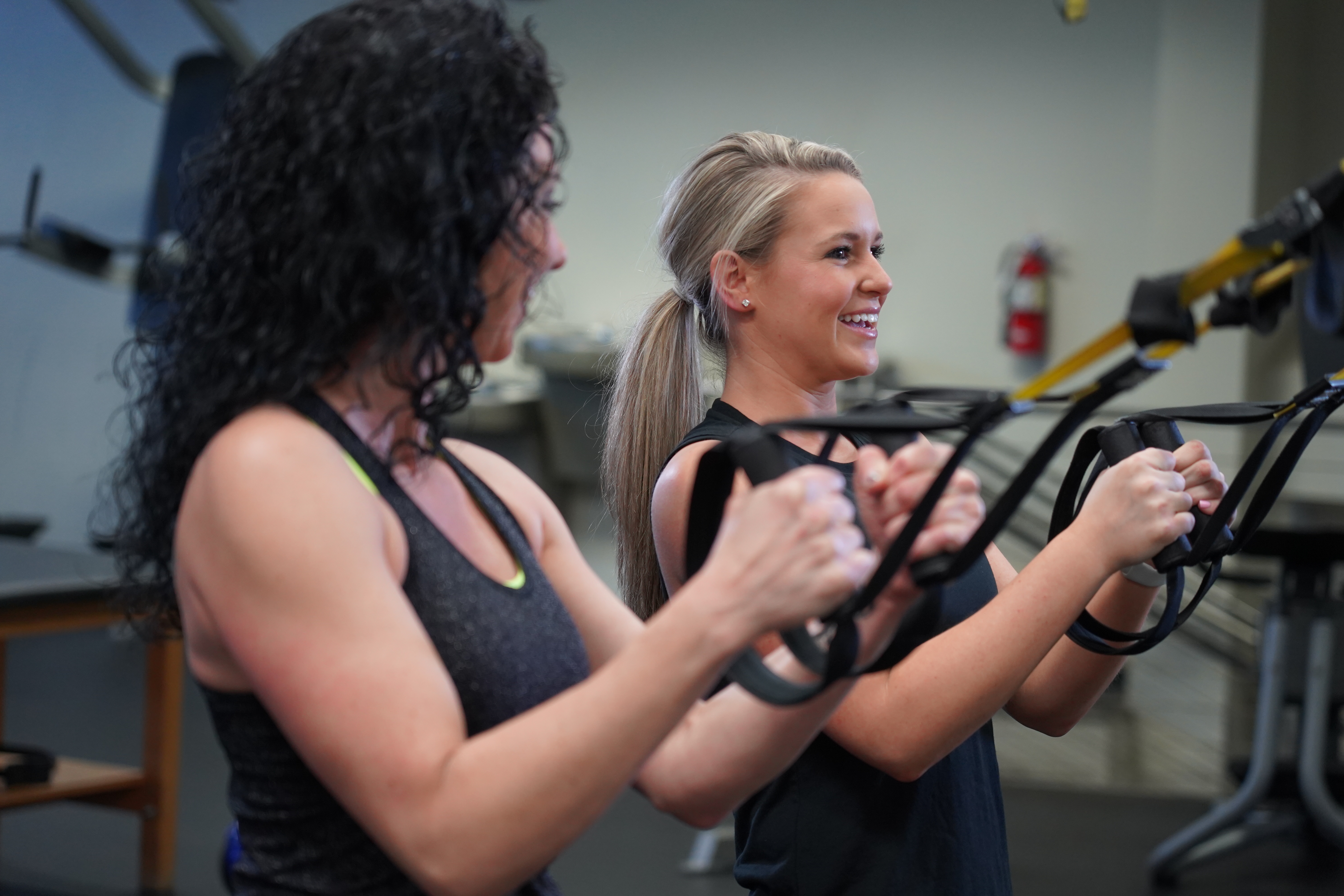
To surround yourself with other people trying to live a healthier lifestyle, you’re better able to find the motivation to keep yourself on track.
The number one reason people make changes is that they have someone to be accountable to. Invite your friend to workout with you on Fridays for Friendly Friday!
You can also try a Personal Training session with one of our certified Personal Trainers. Our team of fitness professionals is the ultimate “accountabilibuddy.” They’re trained to focus on you as a whole person, not just prescribe exercise. Our Personal Trainers will listen to your needs and set you up with a program that works best for you. Trainers will know the challenges you’re going through – mental and physical – and be able to help you adapt your gym plans to the stresses of life.
And even if you’re unable to invest in personal training, Genesis Health Clubs offers several services that are included in your health club membership with no added charge, like a free one-hour assessment for all new members, group exercise classes, and free workshops lead by our personal trainers multiple times a month.
So, whether that accountability comes from a gym friend, group exercise classmates, or a personal trainer, find someone who knows your goals and can help you keep focused.
 Be consistent and keep it simple.
Be consistent and keep it simple.
That popular idiom holds: it’s a marathon, not a sprint. Becoming a lifetime exerciser is a journey with no finish line, so you must find the exercise you enjoy.
We also recommend finding an exercise plan that you could sustain forever. Whether that means you have a regular group exercise line-up or consistent meetings with a personal trainer, it is important to find a balance that will promote a life of physical wellness.
We’ll leave you with this final piece of advice: the biggest difference between a beginner and an expert in the gym is consistency. Beginners have an on-and-off-again relationship with fitness. Experts couldn’t imagine their life without it. Find ways that you can incorporate movement every day, and you’ll soon be identifying as a lifetime exerciser too.
